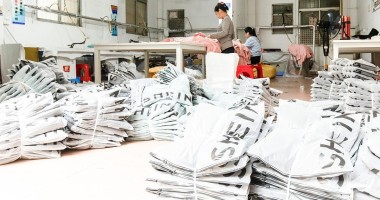75-hour weeks, obscure audits, and blatant “whataboutism”: Factory employees refute fast-fashion company Shein’s promises to make improvements ( www.publiceye.ch )
Two years after our pioneering investigation into Shein’s southern Chinese manufacturing plants, a follow-up investigation highlights what the online fashion giant’s sustainability rhetoric is worth. Illegal working hours and piecework wages remain a typical feature of the everyday lives of the workers interviewed. Hence the doubt that is cast over a factory audit commissioned by Shein. The ultra-fast fashion company, which has come under pressure, is also arousing suspicion due to its opaque finances and because its founder has disappeared from the scene.
"I work every day from 8 in the morning to 10.30 at night and take one day off each month. I can’t afford any more days off because it costs too much.” This statement was made by a man who has been working at sewing machines for over 20 years and, at the time of the interviews, was making the particularly noticeable turn-up seams for Shein products on a piecework basis. Our investigation partners talked to him and 12 other textile workers working for suppliers to the Chinese fashion group in late summer 2023. The interviews were conducted in production facilities located just west of Nancun Village, but still in the greater Guangzhou area in southern China.
TLDR:
-
Unlike some other fashion companies, Shein does not reveal its suppliers. The production processes for Shein were established based on the interviewees’ responses and the Shein products visible during manufacturing.
-
Interviewees stated that they worked an average 12-hour working day – minus lunch and dinner breaks – at least six, but usually even seven days a week. One company was found to officially close at night – but only at 11 p.m.
-
As workers have to work 75 hours a week instead of the normal 40 hours, the basic wage, after deducting overtime pay (at 150 percent of the normal wage and 200 percent on days off), comes down to only about 2,400 yuan per month. According to calculations performed by the Asia Floor Wage Alliance, a living wage in China, which covers a family’s basic needs, is currently 6,512 yuan.
-
Shein and then the three audit organizations SGS, TÜV Rheinland and Intertek, which performed the audit together, have been asked to allow a look at the complete report – but to no avail.
-
The online summary of the audit sounds more like a reactive PR message than a professional analysis. Shein confirmed that the wages quoted were the total amounts paid. However, assessing income earned without taking into account the hours worked is about as meaningful as measuring the speed in a race with a stopwatch, but without reference to the length of the course.
-
Critics about the excessively long and – also under Chinese law – illegal working hours endured. To completely ignore this main issue by Chinese managers and refer instead to supposedly above-average wage levels is “whataboutism” in its purest form.
-
Unpaid alterations are the norm. Any stitcher whose work is not up to scratch (and who can be easily identified from their small orders) has to perform alterations unpaid, according to the interviewees. “Whoever makes the mistake is responsible for putting it right. You have to fix the problem in your own working time”, explains a 50-year-old supervisor.
-
Shein is also continuing to show a lack of transparency about its structure, profits, and owners. It has a market presence in more than 150 countries, 19 offices with 11,000 employees and partnerships with 4,600 designers and more than 5,000 suppliers: these are the sparse company figures that appear on its website.
-
According to commercial register data, this is still held by Beauty of Fashion Investment. But it’s still unclear who owns this company, which is registered in the British Virgin Islands. According to the United States’ lobbying register, Shein founder Xu Yangtian has a 37 percent stake in the group, but it’s also unclear whether this is held in Beauty of Fashion or another offshore company.
The reports conclude that politicians are alarmed, but have not taken any action (yet), saying:
The lack of change in terms of excessive overtime and the other findings from our investigations indicate: Shein will only assume more social responsibility when subjected to external pressure. Would an IPO force the throwaway fashion company to become more sustainable? Hardly. The recent billion-dollar investments show that there are still enough backers who see Shein’s business model providing a profit opportunity and who don’t consider greenwashing as an investment risk.
However, parliaments and governments have available the most effective lever for remedying the grievances highlighted above. At the time of our pioneering investigation in 2021, Shein was still a fairly new and very bright star in this sector. Three years down the line, politicians can no longer ignore the problems caused by this group – also because Temu has now followed in Shein's online footsteps, offering an even wider range of low-cost goods. In actual fact, various initiatives introduced in France, the EU, the United States and also Switzerland reflect the alarm felt by legislators. But do they also have the courage to finally put fast-fashion companies in their place? And not just by passing a weak “Lex Shein” to keep the low-cost competitor from China at bay to protect the fashion industry, which is under pressure, but by taking effective action. Because what we need is a fashion industry where no one has to sew clothes 12 hours a day anymore – clothes that are first flown around the world and then end up in the bin, having hardly been worn.
[Edit typo.]
